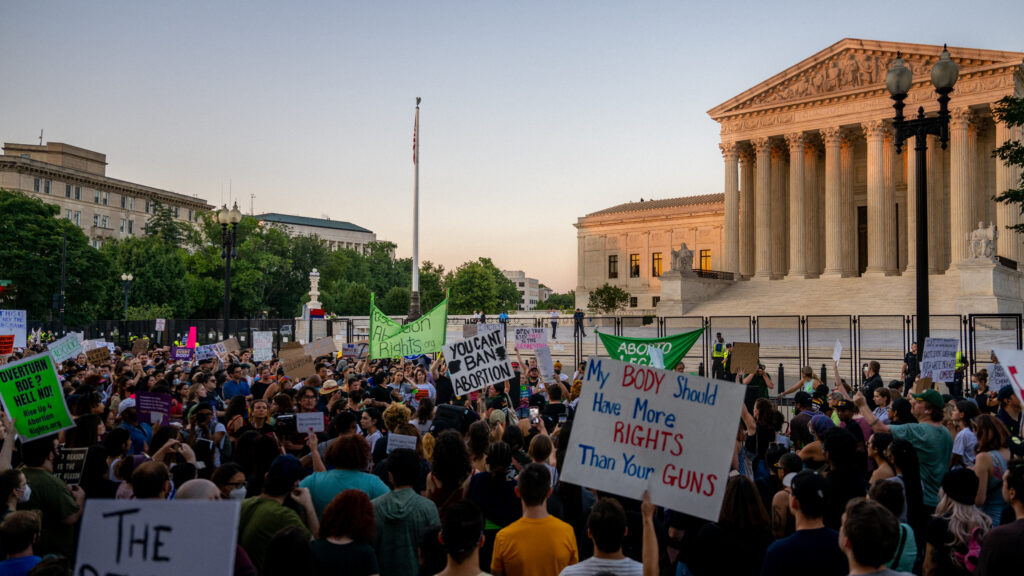WASHINGTON – President Biden on Friday told federal health officials to boost contraception access, the administration’s latest attempt to shore up reproductive rights as abortion limits snowball across the country.
The president’s executive order, released this morning, instructs the Health and Human Services Department to ensure people on commercial insurance are getting contraception at no cost — a requirement under the Affordable Care Act — and consider moves to boost access in Medicare and Medicaid. He similarly ordered Veterans Affairs and the Office of Personnel Management to consider action that would shore up access for veterans and federal employees.
advertisement
However the president does not suggest a timeline for guidance or direct federal officials to consider new requirements to codify access to contraception despite overwhelming support for easy and safe contraceptive options among American voters.
The order comes one year after the U.S. Supreme Court’s Dobbs decision upended abortion rights across the country and triggered a patchwork of state laws on reproductive care. But even with nearly a third of states now banning abortion access — and some state Republicans training their sights on contraception limits — an overwhelming majority of Americans support keeping contraceptive options easily accessible.
“We’re really trying to do three separate things, all related to each other, in this executive order,” Jen Klein, White House Gender Policy Council director, told reporters. “The first is increased and expanded contraceptive options. The second is to lower out-of-pocket costs. And the third is to raise awareness about what options are available.”
advertisement
The Affordable Care Act, passed in 2010, already requires that commercial insurers cover at least one contraception option from each class — varying forms of birth control pills, an intrauterine device and other implants — at no out-of-pocket cost for patients. However the law allowed for certain payer exemptions on the basis of religious beliefs, a carve-out the White House pledged this January to remove.
The executive order is aimed at both noncompliance and providing more options, said Katie Keith, a gender policy council senior advisor who added that HHS and other agencies “have been tracking some of the reports out there about the failure to comply,” with ACA coverage requirements. “We’re being responsive to what we’re seeing out in the field.”
Congressional Democrats have also called on the administration to provide birth control pills over-the-counter, which could happen within months if the Food and Drug Administration follows a May recommendation from an advisory panel to let Perrigo sell its pill on pharmacy shelves.
Biden officials declined Thursday to comment on that possibility, stating it was up to FDA officials to make the call.
The federal drug regulator is also under fire from conservative groups and red-state governors for easing restrictions on the long-approved abortion pill mifepristone.
Fifteen states have implemented abortion restrictions since the Dobbs decision last June, some criminalizing the procedure as early as six weeks into pregnancy.
However, while many Republican voters — and lawmakers — have backed abortion limits and bans, many more are hesitant about extending limits to contraception. More than 90% of Republican voters believe condoms and birth control pills should be readily accessible and at least 80% back access to intrauterine devices, according to a FiveThirtyEight poll conducted a month after the Supreme Court decision.
More than half of states require insurers to cover contraception and many allow pharmacists to counsel people on contraceptive care and options. But confusion persists: The FDA last December issued guidance clarifying that emergency contraception known as ‘Plan B’ is not an abortion pill.
Supreme Court Justice Clarence Thomas also raised reproductive rights’ advocates fears last summer with his opinion on the Dobbs case, which seemed to question a right to contraception amid his support for limiting abortion.
Congressional Democrats sought to codify contraceptive rights in the wake of the Dobbs decision, a move that some conservative groups said was unnecessary as only a “tiny fraction” of Republicans believe in limiting contraceptive access.
Democrats re-launched legislation to codify contraception access this month.

